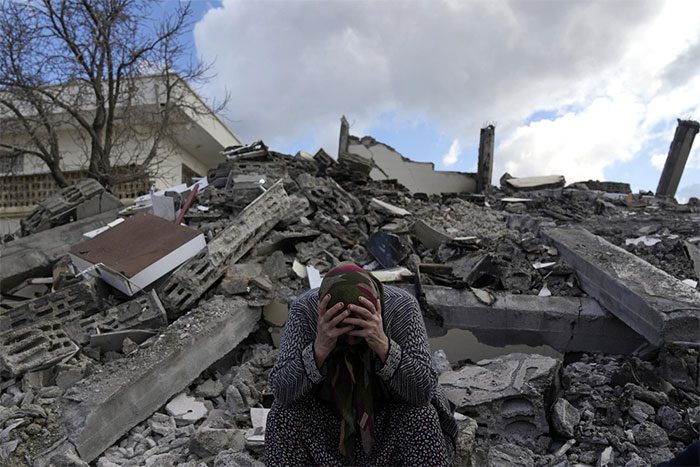The earthquakes that struck Turkey in February created approximately 100 million cubic meters of rubble, according to estimates from the United Nations Development Programme (UNDP).
The earthquake on the morning of February 6, which had its epicenter in southern Turkey, caused over 160,000 buildings in Turkey and northern Syria to collapse or suffer severe damage.

These collapsed buildings generated 100 million m3 of debris. (Photo: AP)
These collapsed buildings produced 100 million m3 of rubble, concrete, steel, and other construction materials, enough to cover half of Washington, D.C. in debris one meter high, according to the UNDP’s estimates.
This volume of rubble is significantly larger than that from natural disasters in the last decade. Specifically, the amount of rubble from the 2015 Nepal earthquake was 27 million m3, the 2010 Haiti earthquake was 10 million m3, Hurricane Dorian in 2019 was 1.7 million m3, the 2004 Indonesia tsunami was 1 million m3, and Typhoon Haiyan in the Philippines in 2013 was 760,000 m3.
Christine Goulet, Director of the Earthquake Science Center at the United States Geological Survey (USGS), stated that the combination of strong earthquakes and weak infrastructure in the affected areas contributed to the massive volume of rubble. The earthquake in February was the strongest to hit Turkey since 1939.
“The number of collapsed buildings is astonishing,” Goulet said. “A city cannot be built in a day; it consists of many buildings constructed over decades according to various standards and methods.”
According to Goulet, some buildings were vulnerable to collapse in such a strong earthquake, but the number should not have been as high, especially for newer constructions.
The earthquake-affected area in Turkey is home to numerous historical and cultural monuments. Many of these are now just remnants of the 100 million m3 of rubble left behind after the quake.
The earthquake on February 6 resulted in over 50,000 fatalities in Turkey and Syria. The United Nations Development Programme estimates that 1.5 million people in Turkey have been left homeless and will require approximately 500,000 new homes. Economic experts suggest that Ankara will need around $100 billion to rebuild housing and public infrastructure following the earthquake.


















































